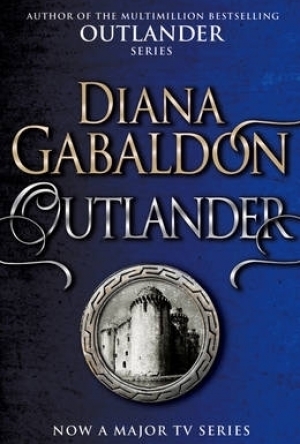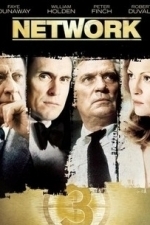Search
Search results
Well researched historical background (2 more)
Intriguing characters
Jamie Fraser
Like many other reviewers of this book, the genre of this story is not my first go to. This aside, I have thoroughly enjoyed reading Outlander.
The novel is set in two different time periods, the first the aftermath of the Second World War, the second during the 1740s and the build up to the battle of Culloden. One of the strengths of this book, is that Diana Gabaldon has researched the historical settings of this novel well, and paints a fantastic image of the times for the reader. With a background in the study of history, I am normally the first to start picking faults in the historiography of a story, however in this case, I was unable to, and instead able to relax into the plot line itself. The novel also encouraged me to carry out further research into Scotland in the 1740s and even visit the Culloden battlefield (and of course the Fraser stone).
The characters in the novel are well thought out and all have their faults as well as strengths (which in my eyes makes them more believable). Clare, the main character is a strong willed and independent woman, however can be outspoken before her time. Jamie is a character that see through Clare’s eyes and as such, we understand why she falls in love with him, is at times held by the constraints about how men and women should act in marriage during the 1740s, and struggles to cope with Clare’s independence.
As readers we are led through a story of 1740s clan culture in Scotland (including the brutal behaviour of the British officer Jack Randall), as well as the emerging love story between Jamie and Clare. This is ultimately a love story, but sexual scenes are much more subtle in text than the dramatisation of the TV series. As is often the case with books that have been dramatised onto the screen, we also get a much deeper insight into the feelings and emotions of a character, which often struggles to translate onto screen.
Overall, I thoroughly enjoyed this book and eagerly await picking up the sequel to find out what will happen next to Clare, Jamie and Frank.
The novel is set in two different time periods, the first the aftermath of the Second World War, the second during the 1740s and the build up to the battle of Culloden. One of the strengths of this book, is that Diana Gabaldon has researched the historical settings of this novel well, and paints a fantastic image of the times for the reader. With a background in the study of history, I am normally the first to start picking faults in the historiography of a story, however in this case, I was unable to, and instead able to relax into the plot line itself. The novel also encouraged me to carry out further research into Scotland in the 1740s and even visit the Culloden battlefield (and of course the Fraser stone).
The characters in the novel are well thought out and all have their faults as well as strengths (which in my eyes makes them more believable). Clare, the main character is a strong willed and independent woman, however can be outspoken before her time. Jamie is a character that see through Clare’s eyes and as such, we understand why she falls in love with him, is at times held by the constraints about how men and women should act in marriage during the 1740s, and struggles to cope with Clare’s independence.
As readers we are led through a story of 1740s clan culture in Scotland (including the brutal behaviour of the British officer Jack Randall), as well as the emerging love story between Jamie and Clare. This is ultimately a love story, but sexual scenes are much more subtle in text than the dramatisation of the TV series. As is often the case with books that have been dramatised onto the screen, we also get a much deeper insight into the feelings and emotions of a character, which often struggles to translate onto screen.
Overall, I thoroughly enjoyed this book and eagerly await picking up the sequel to find out what will happen next to Clare, Jamie and Frank.
RəX Regent (349 KP) rated Network (1976) in Movies
Feb 19, 2019
“I’m mad as hell and I’m not gonna take it anymore!”
…the lasting legacy of Peter Finch’s rants, which began with a breakdown and became the ratings winner in the 1970’s Network driven news media. This is of course, fiction but the commentary on the changing and more corporate driven American media industry of the the time is not without merit.
Smartly scripted, on the ball cynicism and yet harking back to the rose tinted nostalgia common with American media movies in whcih the industry was supposedly filled with Walter Cronkites,
the notion that American press was once beyond reproach is clearly a fallacy, in contrast, the notion that American news media was becoming so ratings driven that the news gave way to outlandish editorialism, is not.
Howard Beale (Finch) has an on air breakdown and whilst his best friend and producer, Max Schumacher (William Holden) tries to pull him from the air waves, allowing him to bow out with some dignity, the new wave of corporate management lead by CEO Frank Hackett (Robert Duval) and Holden’s replacement and eventual lover, Diana, (Faye Dunaway), have other ideas.
She sees an opportunity in the ratings spike gained by Beale’s rants which speak to the peoples growing frustrations and takes advantage, only driven by ratings.
Though the screenplay and performances are nothing less than brilliant, there are two core problems with this movie.
The first being that it is too long. The plot seems to be dragged out and repetitive as we approach the almost inevitable conclusion and the second is the level of preaching. But this is a symptom of the first, opening with a good argument, with old school journalism versus the TV generation and as the film goes on, the arguments need to escalate but since this was covered in the first half an hour, the points become laboured and over started.
The notion that the TV generation is shallow and amoral is put at odds with the middle aged newspaper reader, where time and decency are standard. This is a point which I refuse to accept since some of the 20th centuries most amoral acts where committed either before 1936, the birth of television and in the first couple of decades there after, by the very generation whcih is being held up as the moral standard here.
large_network_blu-ray_3The press has always had its paymasters, always had to sell newspapers and whilst the medium and methods may have changed, this does feel like sour grapes by the end. Criticising the characters motivations is one thing, but this film seems to imply that the modern world of television is making sociopaths of us all, dumbing us down and numbing our emotions to the point of accepting nothing but pure spectacle.
In many ways this is true but is also a very flawed argument and comes across as bunch old men crying into there Scotch in some dimly lit bar, in a way not too dissimilar to the print or broadcast media of today, hitting out at the blogging and twitter generation.
The ending was amusing though with the quote “This was the story of Howard Beale, the only known case of a man killed because of poor ratings”.
Very droll.
Smartly scripted, on the ball cynicism and yet harking back to the rose tinted nostalgia common with American media movies in whcih the industry was supposedly filled with Walter Cronkites,
the notion that American press was once beyond reproach is clearly a fallacy, in contrast, the notion that American news media was becoming so ratings driven that the news gave way to outlandish editorialism, is not.
Howard Beale (Finch) has an on air breakdown and whilst his best friend and producer, Max Schumacher (William Holden) tries to pull him from the air waves, allowing him to bow out with some dignity, the new wave of corporate management lead by CEO Frank Hackett (Robert Duval) and Holden’s replacement and eventual lover, Diana, (Faye Dunaway), have other ideas.
She sees an opportunity in the ratings spike gained by Beale’s rants which speak to the peoples growing frustrations and takes advantage, only driven by ratings.
Though the screenplay and performances are nothing less than brilliant, there are two core problems with this movie.
The first being that it is too long. The plot seems to be dragged out and repetitive as we approach the almost inevitable conclusion and the second is the level of preaching. But this is a symptom of the first, opening with a good argument, with old school journalism versus the TV generation and as the film goes on, the arguments need to escalate but since this was covered in the first half an hour, the points become laboured and over started.
The notion that the TV generation is shallow and amoral is put at odds with the middle aged newspaper reader, where time and decency are standard. This is a point which I refuse to accept since some of the 20th centuries most amoral acts where committed either before 1936, the birth of television and in the first couple of decades there after, by the very generation whcih is being held up as the moral standard here.
large_network_blu-ray_3The press has always had its paymasters, always had to sell newspapers and whilst the medium and methods may have changed, this does feel like sour grapes by the end. Criticising the characters motivations is one thing, but this film seems to imply that the modern world of television is making sociopaths of us all, dumbing us down and numbing our emotions to the point of accepting nothing but pure spectacle.
In many ways this is true but is also a very flawed argument and comes across as bunch old men crying into there Scotch in some dimly lit bar, in a way not too dissimilar to the print or broadcast media of today, hitting out at the blogging and twitter generation.
The ending was amusing though with the quote “This was the story of Howard Beale, the only known case of a man killed because of poor ratings”.
Very droll.

